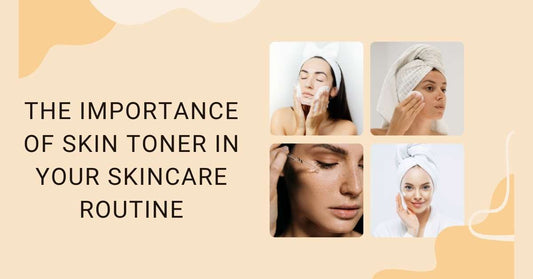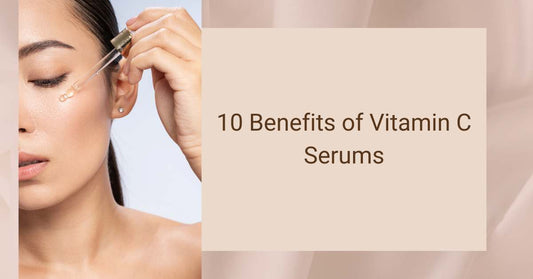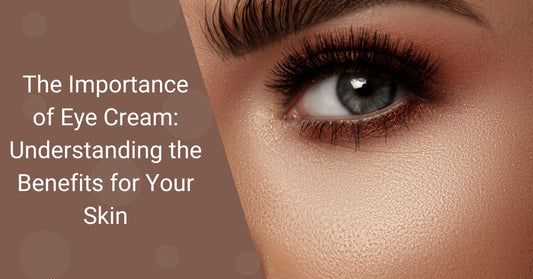Are you tired of battling oily skin and looking for the perfect serum to add to your skincare routine? Look no further! At Iba Cosmetics, we understand the unique needs of oily skin and are here to guide you in selecting the best serum for your specific concerns.
With the plethora of options available in the market, choosing the right serum can be overwhelming. But fear not! We've got you covered with expert tips and insights to simplify your decision-making process.
In this comprehensive guide, we'll delve into the factors to consider when selecting a serum for oily skin, including key ingredients to look for and ones to avoid. Whether you're targeting excess oil production, acne, or simply seeking to achieve a healthy, balanced complexion, we'll help you find the perfect formula tailored to your needs.
Types of Skin Serum
When it comes to skin serum, the beauty market offers a diverse array of options tailored to address various skin concerns. For those grappling with oily skin, selecting the right serum is key to achieving a balanced and radiant complexion. Here's a breakdown of some types of serums ideal for oily skin:
Hyaluronic Acid Serums:
Hyaluronic acid is a powerhouse ingredient known for its ability to hydrate the skin without adding excess oil. Serums infused with hyaluronic acid penetrate deep into the skin, delivering intense hydration to help plump and smooth the complexion.
Niacinamide Serums:
Niacinamide, also known as vitamin B3, is a versatile ingredient celebrated for its oil-regulating properties. Serums containing niacinamide work wonders for oily skin by reducing excess sebum production and minimizing the appearance of enlarged pores.
Salicylic Acid Serums:
Salicylic acid is a beta hydroxy acid renowned for its exfoliating properties, making it a go-to ingredient for oily and acne-prone skin types. Serums formulated with salicylic acid gently exfoliate the skin, effectively unclogging pores and preventing breakouts.
Vitamin C Serums:
Vitamin C is a potent antioxidant celebrated for its brightening and complexion-evening benefits. Serums enriched with vitamin C not only help to fade dark spots and hyperpigmentation but also impart a natural radiance to the skin. For oily skin types, vitamin C serums offer the added advantage of antioxidant protection against environmental stressors
How To Choose A Face Serum
Skin Type Assessment: Identify your skin type - whether it's oily, dry, combination, or sensitive. Choose a face serum that addresses your specific concerns, such as hydration, anti-ageing, brightening, or acne-fighting properties.
Ingredients Matter: Look for serums with potent active ingredients tailored to your skin's needs. For anti-ageing, opt for serums containing retinol or peptides. Vitamin C and hyaluronic acid are excellent choices for brightening and hydration respectively. Avoid potential irritants if you have sensitive skin.
Texture and Absorption: Consider the texture of the serum and how it feels on your skin. Lightweight, fast-absorbing formulas are ideal for oily or combination skin, while richer textures may benefit those with dry skin. Ensure the serum penetrates deeply to deliver its active ingredients effectively.
Best Serum for Oily skin - Iba Advanced Activs 2% Salicylic Acid No More Acne Power Serum
If you're still on the hunt for the perfect serum for your oily skin, look no further than the Iba Advanced Activs 2% Salicylic Acid No More Acne Power Serum. This serum is specifically formulated for oily and acne-prone skin, making it an ideal choice for those struggling with excess oil and blemishes.
Infused with potent ingredients like salicylic acid, green tea extract, willow bark extract, cucumber extract, and witch hazel water, this serum targets oily skin and helps combat acne and pimples. These ingredients work together to control oil production, reduce inflammation, and soothe the skin without irritating it.
One of the standout features of this serum is its lightweight formula, which allows it to penetrate deep into the skin quickly while providing hydration from within. Additionally, this serum has been dermatologically tested, ensuring its safety and efficacy for oily and acne-prone skin. Say goodbye to oily skin and hello to a clearer, more balanced complexion with the Iba Advanced Activs 2% Salicylic Acid No More Acne Power Serum.
How to Use Serum For Oily Skin?
Once you've selected the ideal serum for your oily skin, the next step is to master its integration into your skincare regimen. Here's a step-by-step guide to incorporating serum effectively:
Cleansing: Kick off your skincare routine with a gentle cleanser tailored to your skin type. This step is essential for removing impurities and excess oil, laying the groundwork for optimal serum absorption. Consider using a cleanser from the same product line as your serum for a cohesive skincare approach.
Toning: After cleansing, reach for a toner to rebalance your skin's pH levels and further refine your complexion. Toners not only help to hydrate the skin but also work to minimise the appearance of pores, warding off whiteheads and blackheads. Gently pat the toner onto your skin using a cotton pad, ensuring thorough coverage across your face and neck.
Serums: Now, it's time to apply your chosen serum. Dispense a small amount onto your fingertips and delicately massage it into your skin, focusing on areas of concern such as excess oiliness or acne. You ensure maximum absorption and efficacy by directly applying the serum to your skin. Take your time to massage the serum using upward motions, allowing it to penetrate deeply for optimal results.
Sunscreen Protection: As a final step, don't forget to shield your skin from harmful UV rays by applying a broad-spectrum sunscreen lotion. This is especially crucial if your serum contains ingredients like vitamin C, which can make your skin more sensitive to sun exposure. Opt for a lightweight sunscreen formula that won't clog pores or exacerbate oiliness, and be sure to reapply as needed throughout the day.
By following these simple steps, you can seamlessly incorporate a serum into your skincare routine and reap the full benefits of its potent ingredients.
FAQ’s
Can serums help control excess oil production?
Yes, serums formulated with oil-regulating ingredients like niacinamide, salicylic acid, and witch hazel can help control excess oil production in the skin. These ingredients work to balance sebum levels, minimize pore size, and prevent clogged pores, resulting in a more matte and balanced complexion for oily skin types.
Will using a serum make my oily skin feel greasy?
No, serums are typically lightweight and fast-absorbing, so they won't leave a greasy residue on oily skin. Opt for oil-free serums specifically designed for oily skin. These formulations are formulated to hydrate and nourish the skin without adding excess oil, ensuring a comfortable and non-greasy feel.
Why are most Vitamin C serums available in dark coloured bottles?
Vitamin C serums are often packaged in dark-colored bottles to protect the product from light exposure, which can degrade the potency of vitamin C. The opaque packaging helps maintain the serum's effectiveness.
How often should I apply serum if I have oily skin?
You can apply serum once or twice daily, depending on your skin's needs and the serum's instructions. It's generally recommended to use serums in the morning and/or evening after cleansing and before moisturizing. Adjust the frequency based on how your skin responds.
Which is better - serum or moisturiser?
Both serums and moisturizers play important roles in skincare. Serums deliver potent active ingredients and target specific concerns, while moisturizers hydrate and protect the skin's barrier. For oily skin, a lightweight serum followed by an oil-free moisturizer is often the best approach.
Which best serum for oily skin - salicylic or vitamin c?
For oily skin, a salicylic acid serum is typically recommended. Salicylic acid helps to unclog pores, reduce excess oil production, and prevent acne breakouts. While vitamin C can also benefit oily skin by brightening and reducing inflammation, salicylic acid is more targeted towards addressing the specific concerns of oily and acne-prone skin.





